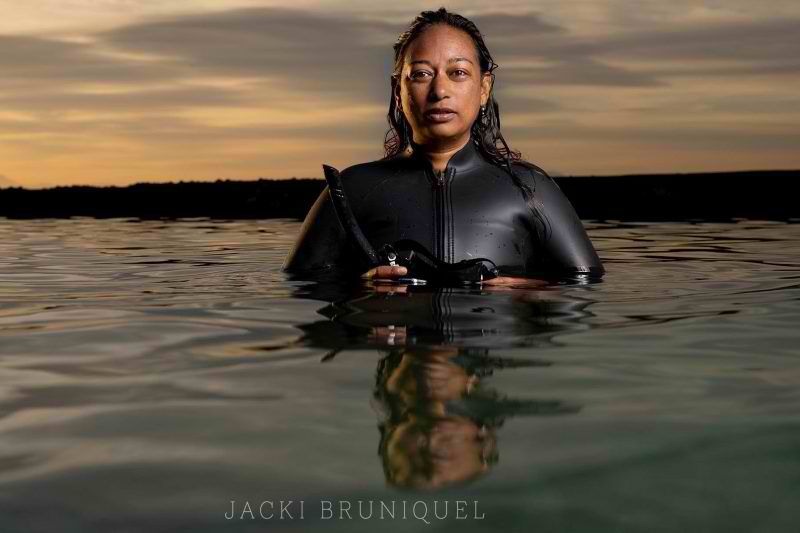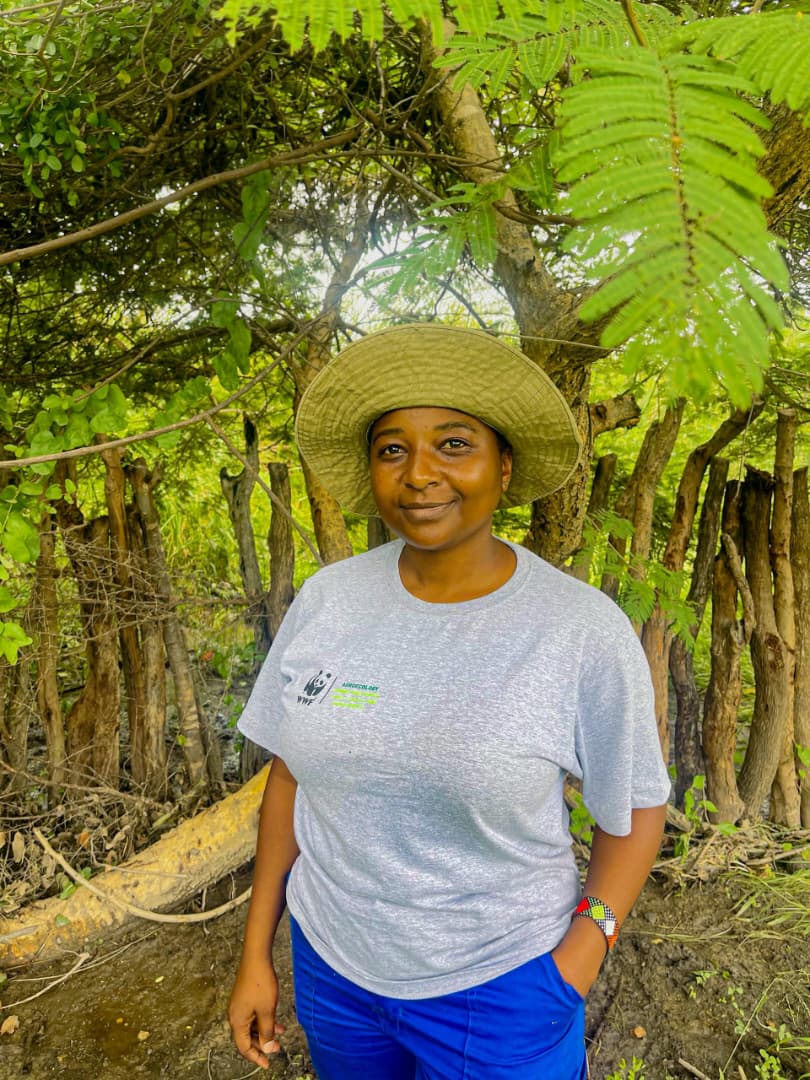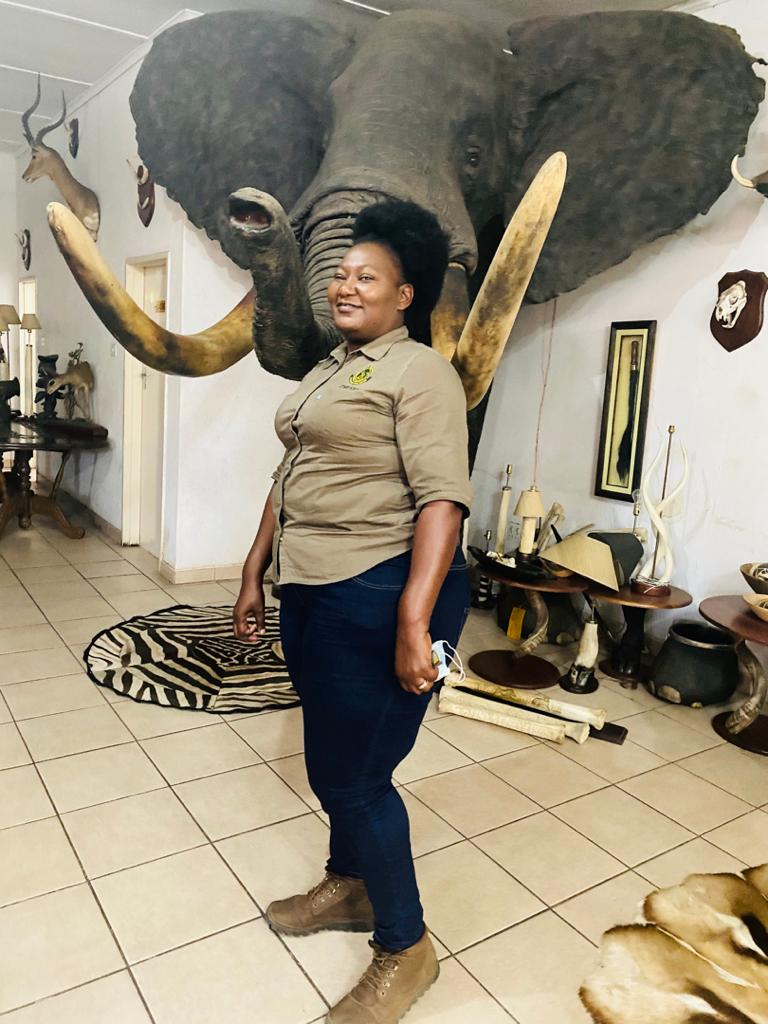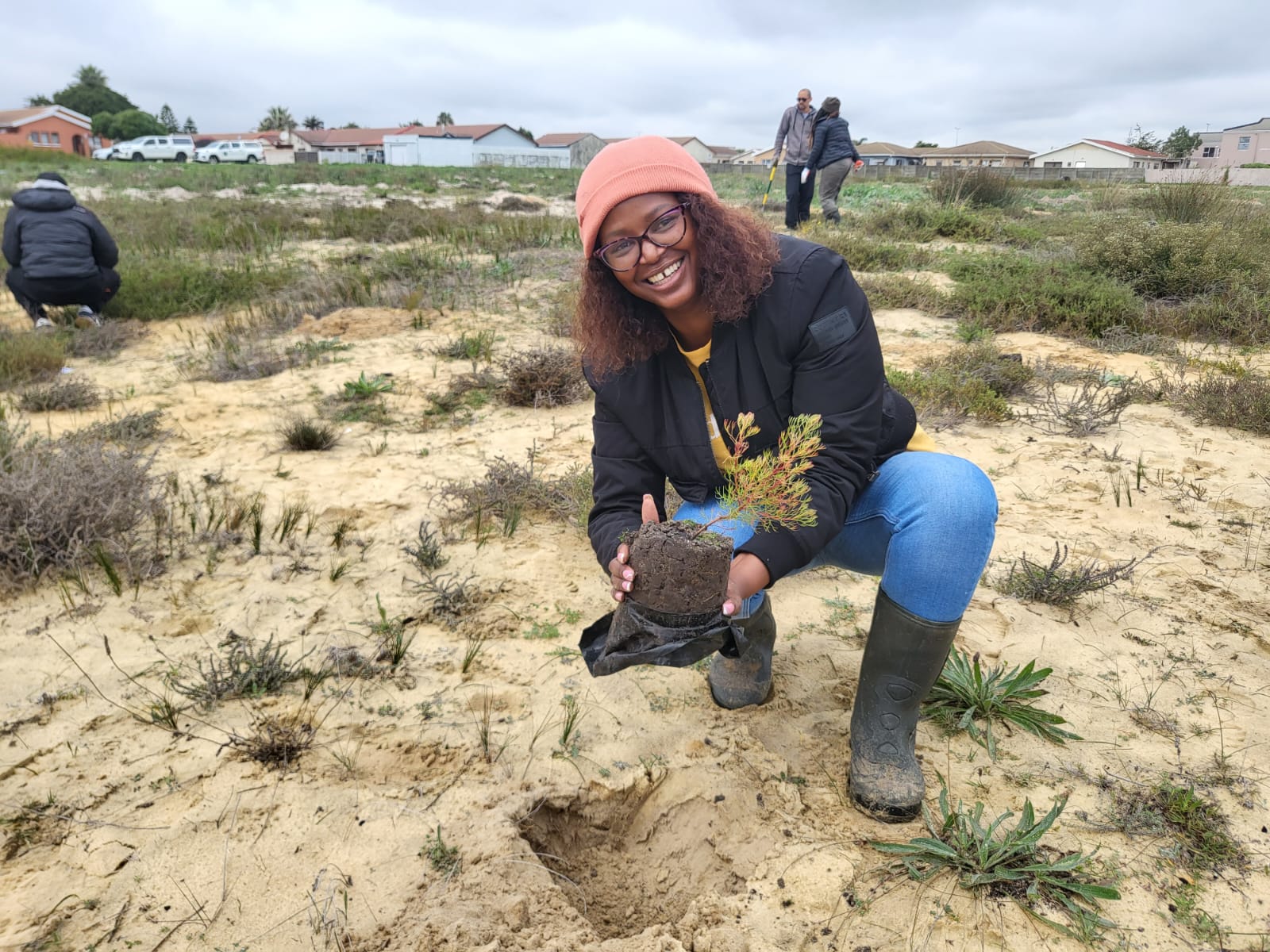These resources belong to all of us. And yet, not all of us get a say in how we extract, use and benefit from them.
Founder and Director of The Beach Co-op, Aaniyah Martin, believes that we all need to take ownership of our resources because they belong to all of us. Her approach towards environmental conservation is driven by her values, including a sense of belonging, community, clarity, trust, and authenticity.
Aaniyah hopes that her work will get as many people, particularly the marginalised, to experience the awe and wonder of nature and the healing power it has.
She shares her story with Damaris Agweyu.

Aaniyah, when would you say you came into your own?
The process started about two years ago, just before the Black Lives Matter movement blew up. I had a many disagreements with my white friends, or those that present as white, about their privilege. My sister recommended that I do a course called Becoming Fully Human. It addressed issues around racism. I had therapy sessions alongside the coursework, and this unravelled a lot for me. I realised how, all these years, I had been assimilating into specific spaces to fit in. As a result, I'd been subconsciously carrying this huge weight all my life.
I am glad I did that course because it allowed me to fully discover who I am and what I want.
How did you feel as it all unravelled?
Angry. I felt like I had let myself down. But my therapist helped me navigate those feelings. She told me to look at what I had accomplished with my life; a lot of it may not have been possible if I had lived my life differently. I needed to focus not on the mistakes I had made but on my choices going forward.
I see how much harm I've done to myself, but I'm also not being hard on myself; I am approaching it all with great compassion.
With this new level of understanding, did the tone of your work change?
Very much so. Our annual report for this year was titled Opening Oceans for All. It's about approaching issues from a different lens.
Understanding the intersection between the social, environmental and economic, and bringing all of those onto one platform gives more power to the environmental work.
While researching you, I came across the word intersectional environmentalism for the first time. What does it mean exactly?
While studying for my degree in the science faculty, I encountered the divorced line between people and nature. They are now trying to teach it in a more interdisciplinary way, but in my time this wasn't the case.
Today, we know that the traditional ways in which environmentalism has been practised – the patriarchal, western, and exclusionary ways – haven't worked.
Understanding the intersection between the social, environmental and economic, and bringing all of those onto one platform gives more power to environmental work. This is an inclusive version of environmentalism that advocates for both the protection of people and the planet.
I've realised that diversity is key; assimilation is not. It's been this personal journey to arrive here and bring my work with me because I've held myself back for the longest time. I've tried to push for diversity but through assimilation. I think it's related to my personality, wanting to approach things gently and not hurting anyone.
I'm learning to ask the hard questions, to stand up and address issues that haven't been addressed. I don't need to please everyone.
For intersectional environmentalism to work, experts in their respective fields need to have an open mindset, but that is often a challenge. People tend to get stuck in their areas and ways of doing things. They don't want to participate and take the time for new processes to work. That's why there aren't many success stories. It will take time. We need to understand it as a way of life because we're trying to break down capitalism.
Is that the goal? To break down capitalism?
Yes. Capitalism is very much linked to patriarchy, the western way of doing things, and industrialisation. The intersectional way is changing and slowing down those things. It's about talking to indigenous cultures and vulnerable communities that are most affected by these issues. If we are to address climate change, we need to be consuming and extracting less, which is directly linked to capitalism.
And this speaks directly to my PhD. I am working on an area which I term the hydro-commons. My focus is the marine system. A marine system would not be if it weren't for healthy catchment areas and rivers that bring water to the ocean. In turn, the ocean feeds back into those catchments and rivers. It's a cycle. Each one relies on the other.
This, essentially, is the way the world works. We all rely on these resources; they belong to all of us. And yet, not all of us get a say in how we extract, use and benefit from them. The power and balance have been so skewed for so long. Dismantling this system is no mean feat.
I'm still figuring out how to go about it because I don't want to lead as an individual but, instead, within a community. I am big on collective leadership. Interestingly, within conservation, egos are so high up on the agenda that even the way we do conservation is around flagship species instead of the ecosystem approach. So the species themselves become the icon, and if you're the person researching that great white shark, you become the hero. This is what I would want to change.
Tell me about your nonprofit, The Beach Co-op.
I founded The Beach Co-op as a way for me to give back to my local beach. I asked myself, how can I, together with others, make a difference? What can I contribute to this place where I go with my family to have fun? I reached out to a few of my ex-colleagues at WWF South Africa, where I'd worked for ten years. One of them was Professor Peter Ryan.
He formulated the dirty dozen methodology, a citizen's approach to managing waste. Through our discussions, we started engaging with local communities to do beach cleanups and collect data. So yeah, again, it's crossing over. Science doesn't belong to scientists only; it belongs to all of us, our beaches belong to all of us. Our oceans belong to all of us. This is part of the hydro commons, a shared resource that we all need to care for.
In our South African context, The Group Areas Act forcibly removed people of colour from specific regions. It broke up communities by placing them in places that weren't close to beautiful, natural environments. If they were close to the ocean, they were relegated to a horrible, dangerous rocky shore. So there's this disconnection, especially with brown and black bodies, to our natural environment, and I want to change that too.
Our beach cleanups are fun and accessible. People that don't associate themselves with cleaning a beach are joining us. We've brought in a graffiti artist who has depicted, on the boardwalk, what we find from a biodiversity perspective in our tidal pools and on the rocky shore or sandy beaches. We've had a dancer perform pieces related to their connection with the ocean at our events. All this speaks to the intersectional approach.
Our mission is to get our communities to care for, participate in, and engage with our marine environment. Working through the vision, I've realised that it doesn't only apply to marine conservation. I see myself evolving, moving in a direction beyond marine-focused efforts because many principles apply to conservation in general. It's about bringing those other disciplines to conservation, or maybe taking conservation to those other disciplines.
What influenced you to choose marine conservation as a profession?
Growing up, reusing and recycling was our way of life. My mum, who came from a low-income home, raised us to believe that it was necessary to always care for what you have and take responsibility for it. I remember her taking wastewater from the basin sink and putting it on her growing herbs.
Also, as a child, I instinctively took to nature. My geography teacher played a significant role in nurturing my passion for environmentalism. She was also the hiking club coordinator and it was through her and the hikes she organized that I got to visit and explore the wilderness.
My love for the ocean came directly from my dad and mum, who taught us how to swim from a very young age. Dad says he learnt to swim in the Liesbeek River, which, today, you wouldn't dream of swimming in because of all the pollution. My mum grew up along the False Bay coastline in a small town called the Strand. We would do beach outings as a family. I've recently discovered that they would even take us to beaches that were restricted to whites only. I asked my mum how she did that. She told me, "We either went very early in the morning or around sunset time, and people would just ignore us or turn a blind eye".
I am starting to realise that those processes protected us, as children, from feeling "othered". That is what made me believe that I belonged in places that were traditionally seen as whites-only spaces. My brown and black-skinned friends have asked me how I enjoy going to Dale Brooke tidal pool, a pool that mainly white people go to. Well, it's because I went there as a child with my parents.
When Nelson Mandela got released from prison, schools that were only for white pupils opened up for people of colour. I was one of 5 people of colour to attend such a school. So my resistance to being excluded from white spaces started from a very young age. But now I know that what happened is that I was assimilating, aspiring for acceptance by trying to be "white".
As I hear you talk, I can't help but think of some of the beaches here in Kenya, where the locals are also "othered" as you put it.
It's more common than we'd like to believe. It's something I want to address through my research. And yet, I've observed with my parents and some of my brown and black friends who feel that access to wild spaces was taken away from us for so long, they're now owed to us; we can now do whatever we want with this access. I understand that, but it doesn't feel like that's the correct answer for me. Because you never had it for the longest time, now you can take as much as you want at the expense of everyone else? That's a hard one that I am grappling with. It speaks to collective ownership despite the past inequalities and injustices from our apartheid legacy.
The Beach Co-op is an all-female team, correct?
Correct.
Is that by design or by default?
It's a bit of both. I think it's what I attracted. I wanted a flexible job where I could be there for my children and still do the work that I was passionate about. The people who eventually came to work with me were aspiring and looking for that kind of flexibility; it just so happened that they were all female. I am delighted to be working with these incredible women!
***
This interview is part of a series profiling the stories of the 2021 WE Africa leadership programme fellows, African women in the environmental conservation sector who are showing up with a strong back, soft front, and wild heart.
Also read: Leela Hazzah and Colleen Begg on Elevating the Voices of Female Conservationists in Africa





